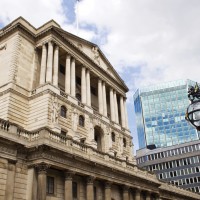
The widely expected hike has put the base rate at its highest level for more than 14 years. The last time the rate came close to this level was in October 2008, when it stood at 4.5 per cent.
The decision to raise the rate by 0.5 per cent was made on a committee vote of seven to two, with the minority voting to keep the rate at 3.5 per cent.
The members who wanted to keep the rate at its level, Swati Dhingra and Silvana Tenreyro, argued that the real economy remained weak as a result of falling real incomes and the tightening of financial conditions in the past year.
Those who voted to raise the base rate said the economy showed “signs of greater resilience” than expected. The GDP growth in Q4 2022 was said to be stronger than the MPC predicted in its November report.
The minutes of the 1 February meeting said inflation remained high and several central banks had continued to tighten monetary policy. However, it noted that “market pricing indicates reductions in policy rates further ahead”. It said the impact of the base rate rises on the economy since December 2021 would become more prevalent in the coming quarters.
The MPC said private sector growth and services CPI inflation was higher than it projected in its November report.
The committee said inflation had started to come down from its peak and was “likely to fall sharply” over the rest of the year. It predicted annual CPI inflation would be around four per cent by the end of 2023.
Impact on mortgage activity
The committee noted that fixed term mortgage rates had consistently fallen since its last meeting in December but were still “materially higher than in the summer”.
It said average quoted rates for two-year fixes at 90 and 75 per cent loan to value stood at six per cent and 5.4 per cent respectively in December, which was 30 and 50 basis points lower than November. Early data from January suggested that rates had decreased by an additional 25 basis points.
The MPC said spreads, the difference between the interest a bank pays to depositors and the rate it receives from loans, were not far off the average levels seen in 2016 to 2019.
Pointing to the demand for house purchases, the MPC added: “Housing investment growth had slowed to close to zero in 2022 Q3. The weakness in the economic outlook, combined with the impact of higher mortgage rates on the housing market, were expected to continue to weigh on housing investment.”
















